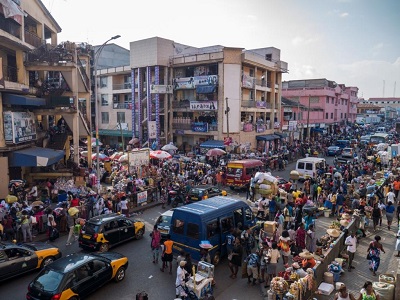Emerging and Developing Economies’ Growth Downgraded Amid Commodity Production Disruptions, Geopolitical Tensions
Emerging markets and developing economies are facing mounting challenges according to the 2024 October World Economic Outlook report.
The forecast reveals downward adjustments for these regions, primarily due to disruptions in commodity production, shipping delays, conflicts, and extreme weather, particularly in sub-Saharan Africa and the Middle East.
Despite these setbacks, emerging Asia stands as a bright spot, with upgraded growth projections driven by a robust demand for semiconductors and electronics, fueled by advancements in artificial intelligence.
Global growth is projected to remain lackluster, at 3.2% in both 2024 and 2025, consistent with earlier forecasts. However, the outlook is weighed down by persistent structural barriers, including aging populations and weak productivity, limiting potential growth.
The longer-term forecast for global growth remains subdued at 3.1%, falling short of pre-pandemic levels.
On inflation, the report offers a more optimistic view, highlighting a decline from 6.7% in 2023 to 5.8% in 2024, as cyclical imbalances ease. Advanced economies are expected to achieve their inflation targets sooner than emerging markets, where services inflation remains a concern.
Goods prices have largely stabilized, but inflation in services continues to pose challenges, necessitating sector-specific monetary policy adjustments.
Despite the moderation in inflation, the global economy still faces significant risks. Financial market volatility, particularly in developing nations with high external financing needs, could derail growth efforts. Additionally, the report warns that disruptions to disinflation processes, potential commodity price shocks, and geopolitical tensions could further strain central banks and fiscal stability.
The risk of prolonged weakness in China’s property market or rising protectionist policies globally could further suppress consumer and investor confidence, compounding the economic uncertainty.
In this fragile environment, policy responses must be carefully calibrated to address immediate fiscal and financial vulnerabilities, while longer-term structural reforms will be essential to improve resilience and foster sustainable growth.







